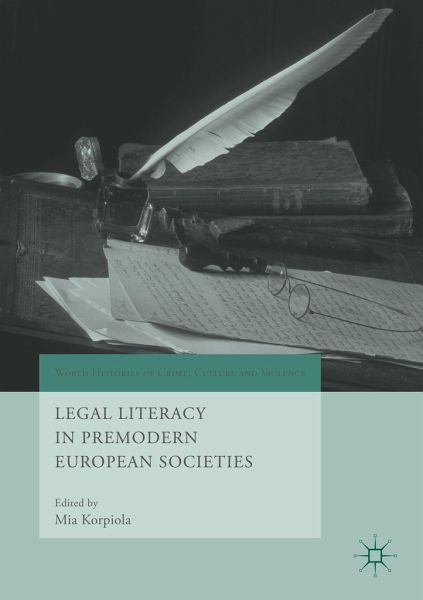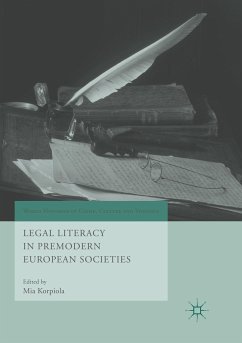
Legal Literacy in Premodern European Societies

PAYBACK Punkte
46 °P sammeln!
This book analyses the legal literacy, knowledge and skills of people in premodern and modernizing Europe. It examines how laymen belonging both to the common people and the elite acquired legal knowledge and skills, how they used these in advocacy and legal writing and how legal literacy became an avenue for social mobility. Taking a comparative approach, contributors consider the historical contexts of England, Finland, France, Germany, Italy and Sweden.This book is divided into two main parts. The first part discusses various groups of legal literates (scriveners, court of appeal judges and...
This book analyses the legal literacy, knowledge and skills of people in premodern and modernizing Europe. It examines how laymen belonging both to the common people and the elite acquired legal knowledge and skills, how they used these in advocacy and legal writing and how legal literacy became an avenue for social mobility. Taking a comparative approach, contributors consider the historical contexts of England, Finland, France, Germany, Italy and Sweden.
This book is divided into two main parts. The first part discusses various groups of legal literates (scriveners, court of appeal judges and advocates) and their different paths to legal literacy from the Middle Ages to the nineteenth century. The second part analyses the rise of the ownership and production of legal literature - especially legal books meant for laymen - as means for acquiring a degree of legal literacy from the eighteenth to the early twentieth century.
This book is divided into two main parts. The first part discusses various groups of legal literates (scriveners, court of appeal judges and advocates) and their different paths to legal literacy from the Middle Ages to the nineteenth century. The second part analyses the rise of the ownership and production of legal literature - especially legal books meant for laymen - as means for acquiring a degree of legal literacy from the eighteenth to the early twentieth century.














